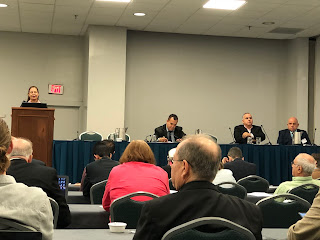La Fundación FAES, de España, ha presentado este informe el viernes 16 durante la Cumbre Iberoamericana, el cual analiza los problemas de consolidación y calidad democrática, desconfianza institucional y desempeño económico de los países latinoamericanos, y que incluye también América Latina en Cifras, un documento adicional que ofrece una radiografía gráfica y cuantitativa de la situación demográfica, económica y social del subcontinente."
América Latina debe generar confianza y certeza institucional para integrarse en la economía global
Guatemala, Nov.16.– La Fundación FAES ha presentado esta tarde su informe estratégico América Latina. Una Agenda de Libertad, un diagnóstico sobre la salud de las libertades, el Estado de Derecho y la calidad democrática en la  región.Asimismo ha dado a conocer América Latina en Cifras, un documento adicional que realiza una radiografía cuantitativa de la situación demográfica, económica y social de los países latinoamericanos. FAES presentan también ambos textos esta semana durante la celebración de la Cumbre Iberoamericana en Guatemala.
región.Asimismo ha dado a conocer América Latina en Cifras, un documento adicional que realiza una radiografía cuantitativa de la situación demográfica, económica y social de los países latinoamericanos. FAES presentan también ambos textos esta semana durante la celebración de la Cumbre Iberoamericana en Guatemala.
¿Podemos afirmar que el socialismo del siglo XXI ha sido derrotado? ¿Ha perdido realmente legitimidad? ¿Se encuentran en crisis las visiones liberticidas y autoritarias exitosas en varios países de América Latina? ¿Qué países todavía pueden bascular hacia la pérdida de libertades y garantías democráticas? ¿Qué nuevas incertidumbres añaden las victorias de López Obrador en México y Bolsonaro en Brasil? El nuevo informe de FAES reflexiona sobre estas y otras cuestiones, sobre la libertad y las amenazas que América Latina enfrenta en la segunda década del siglo XXI.
- Hits: 6982
 Los países anfitriones tienen todo el derecho de rechazar a cualquier extranjero visitante o inmigrante, y cualquiera de ellos que viole las leyes de inmigración o cometa cualquier delito o acto de violencia debe comprender que no tiene derecho alguno de permanecer en el país que no ha respetado, mucho menos si son una amenaza para la paz y la seguridad de sus ciudadanos o residentes.
Los países anfitriones tienen todo el derecho de rechazar a cualquier extranjero visitante o inmigrante, y cualquiera de ellos que viole las leyes de inmigración o cometa cualquier delito o acto de violencia debe comprender que no tiene derecho alguno de permanecer en el país que no ha respetado, mucho menos si son una amenaza para la paz y la seguridad de sus ciudadanos o residentes. nearly €36bn ($40bn) in 2016—almost double the previous years’ total. Chinese FDI fell in 2017, but the share spent in Europe rose from a fifth to a quarter. For the most part, this money is welcome. Europe’s trading relationship with China has made both sides richer.
nearly €36bn ($40bn) in 2016—almost double the previous years’ total. Chinese FDI fell in 2017, but the share spent in Europe rose from a fifth to a quarter. For the most part, this money is welcome. Europe’s trading relationship with China has made both sides richer. before Soviet aid ended--and investment remains at just over one tenth of GDP. The steady net disinvestment in many areas--transport, energy, and water/sewerage infrastructure, let alone housing (the deficit is now estimated at over 880,000 units)--continues. Some indices for this year show a distinct decline. Tourist arrivals are down the first half of 2018, and the sugar harvest (which runs from about December to April) produced virtually a record low of only 1.1 million tons of sugar. One of Cuba's best economists noted a continued rigidity of the bureaucracy, reversal of some reforms, and a drop in the expectations of younger Cubans.
before Soviet aid ended--and investment remains at just over one tenth of GDP. The steady net disinvestment in many areas--transport, energy, and water/sewerage infrastructure, let alone housing (the deficit is now estimated at over 880,000 units)--continues. Some indices for this year show a distinct decline. Tourist arrivals are down the first half of 2018, and the sugar harvest (which runs from about December to April) produced virtually a record low of only 1.1 million tons of sugar. One of Cuba's best economists noted a continued rigidity of the bureaucracy, reversal of some reforms, and a drop in the expectations of younger Cubans.